
Lit Hub's Most Anticipated Books of 2020
A Look Ahead at the Year in Reading
JUNE
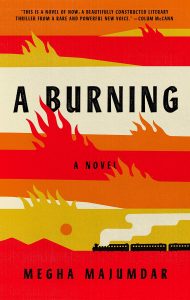 Megha Majumdar, A Burning
Megha Majumdar, A Burning
Knopf, June 2
Megha Majumdar’s debut novel centers on three characters—a young woman living in the slums in contemporary India, a gym teacher, and a social outcast dreaming of another life—who find themselves connected after a terrorist attack shakes the foundation of all their lives. A Burning narrates their stories against the backdrop of some of India’s most pressing social and political issues, including Hindu nationalism and the promises of upward mobility. Having followed Majumdar’s work as an editor at Catapult, I couldn’t be more excited to read the perspective and sensitivity that she’s sure to bring to these characters and the challenges they face. –Corinne Segal, Lit Hub Senior Editor
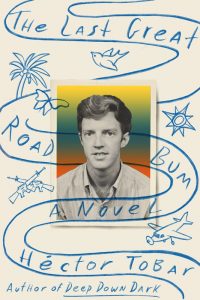 Héctor Tobar, The Last Great Road Bum
Héctor Tobar, The Last Great Road Bum
MCD, June 2
As a reporter and novelist, Héctor Tobar often acts as a biography in miniature. In his fantastic—and ought to be rereleased—travelogue, Translation Nation, he criss-crossed America, interviewing Latinx people and retelling their stories, how they came to where they lived, what they did, how life seemed to them. The speed and respect and sensitivity with which Tobar can encapsulate a life, whether its a trapped Chilean miner, as in his Deep Down Dark, or a domestic worker just trying to get children to safety, as in his fantastic 2011 novel, Barbarian Nurseries, is dazzling.
Finally Tobar is back to fiction in The Last Great Road Bum and he’s written a kind of inside out version of one of his books. It tells the tale of a real life white man from Illinois, Joe Sanderson, who spent most of his life traveling the globe, from Vietnam to El Salvador, where he wound up finding (and dying) with Che-inspired guerillas. Tobar first wrote about the story in an LA Times column, he has now turned into a highly absorbing and thought provoking novel about the forces that can blow a person sideways through life. Drawing from Sanderson’s letters, the novel thinks who gets to tell stories as it probes the lines between myth and reality. This is first rate fiction from a writer who deepens the sky with every book he writes. –John Freeman, Lit Hub Executive Editor
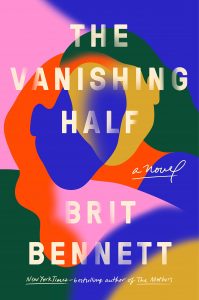 Brit Bennett, The Vanishing Half
Brit Bennett, The Vanishing Half
Riverhead, June 2
The New York Times bestselling author of The Mothers is back with a multi-generational saga of identical twin sisters living in a small southern black community in the 1950s who run away from home at the age of sixteen to embark upon very different lives. Ten years on from their flight, one is back living with her black daughter in the same town from which she once escaped. The other is passing for white, keeping her past a secret from her new husband. Early buzz suggests that this new novel is every bit as moving and thought-provoking as Bennett’s acclaimed debut. –Dan Sheehan, Book Marks Editor
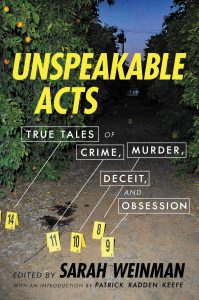 Sarah Weinman, Unspeakable Acts
Sarah Weinman, Unspeakable Acts
Ecco, June 2
This anthology of contemporary true-crime writing, edited by the incomparable Sarah Weinman, contains thirteen short pieces of high-caliber journalism that shook the culture and helped inspire today’s true-crime phenomenon. With pieces by Michelle Dean, Pamela Colloff, and with an introduction by Patrick Radden Keefe, this book will be sure to rivet you again and again. –Olivia Rutigliano, CrimeReads Editorial Fellow
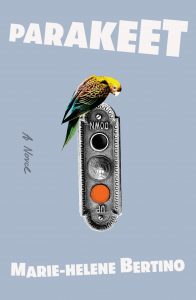 Marie-Helene Bertino, Parakeet
Marie-Helene Bertino, Parakeet
FSG, June 2
This uncanny, darkly comic novel was the first book I read in the year of our lord 2020 and let me tell you: it is an absolute gem. Warm and weird, full of brilliant observations and entrancing, unnerving surrealist touches. It begins with a young woman, sitting alone in a hotel room four days before her wedding, whose dead grandmother appears before her in the form of a parrot. The grandmother-parrot warns her not to get married, and commands her to seek out her estranged brother, a reclusive playwright who made his name with a play about his sister’s troubled childhood. In the days that follow, the bride’s journey to the altar becomes a rabbit-hole descent, both bizarre and profound, into both her past and her beguilingly troubled psyche. –Dan Sheehan, Book Marks Editor
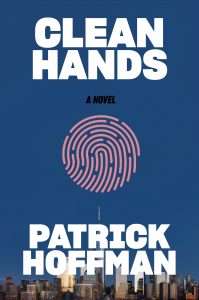 Patrick Hoffman, Clean Hands
Patrick Hoffman, Clean Hands
Grove, June 2
In this clever thriller by private detective turned crime writer Patrick Hoffman, ex-CIA officer Valencia Walker and corporate lawyer Elizabeth Carlyle must team up when Carlyle’s firm becomes the target of theft and blackmail, all leading to something must darker. As documents are slowly leaked to the press and tragic events begin happening, Walker and Carlyle know they do not have long to follow the paper trail and and catch a sinister agent of destruction. Also, this book has an excellent cover. Just saying. –Olivia Rutigliano, CrimeReads Editorial Fellow
 David Mitchell, Utopia Avenue
David Mitchell, Utopia Avenue
Random House, June 2
Galleys are as hard to find as Mitchell’s own cameo in the Sense8 tv series (he’s there!), but David Mitchell’s first novel in five years sounds highly promising. It plans to unfurl the story of a band called Utopia Avenue, a group that emerges in the psychedelic scene of the mid to late 1960s in London. Mitchell follows them as they rise up the charts with two albums and then split up at the point when free love and all that jazz curdled to something else, especially when the state found brutal ways to crack down on it. How do we get beyond ourselves, in drugs, or music, what tools do we use; how we change the world? –John Freeman, Lit Hub Executive Editor
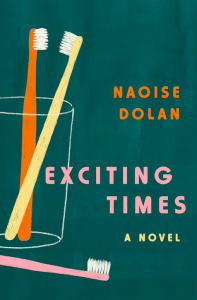 Naoise Dolan, Exciting Times
Naoise Dolan, Exciting Times
Ecco, June 2
Your next read in the exploding canon of books with ironic, enigmatic, borderline emotionless (but actually not really) female narrators should be Naoise Dolan’s Exciting Times (I mean just the title is impossibly ironic—I feel it should only be spoken in that certain dry tone, you know the one), in which Ava, a young Irish woman living in Hong Kong, is kind of sort of dating an English banker, Julian, and then is swept off her feet by a Hong Kong-born lawyer, Edith. But even though there is technically a love triangle, this novel is not really about that—it’s about class, and self-conception, and language, and love, but most importantly, it’s one of those you could read and read without anything having to happen at all, because it’s fascinating—and satisfying—to sit inside Ava’s mind, and watch what happens there. –Emily Temple, Lit Hub Senior Editor
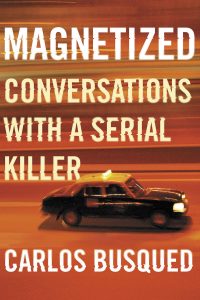 Carlos Busqued, tr. Samuel Rutter, Magnetized
Carlos Busqued, tr. Samuel Rutter, Magnetized
Catapult, June 2
Serial killers will never not be compelling, but we risk much when we seek in them entertainment and diversion without considering what the darkness means, or where it comes from. In Magnetized, Carlos Busqued seeks after some of that meaning in his conversations with Argentine serial killer Ricardo Melogno, who was convicted for the 1982 murders of four Buenos Aires taxi drivers, each one committed with cold precision. Busqued bolsters his conversations with forensic reports and newspaper stories, revealing a life lost before it has really begun, and the tragedy it visits upon the world. –Jonny Diamond, Lit Hub Editor in Chief
 Edward Ball, Life of a Klansman
Edward Ball, Life of a Klansman
FSG, June 2
Just over 20 years ago Edward Ball won a National Book Award for his profoundly good memoir, Slaves in the Family. That it did not spawn a similar reckoning among southerners—as Gunter Grass’s memoir did with Germans, who found their own families full of Nazi pasts—should have earned more attention. One of the great things about that book was the way Ball made it a story driven by the lives of those his family had, in essence, erased. Now in his biggest book since then, Ball has written a biography of his great-great-grand-father, who was active in the Klu Klux Klan in Louisiana after the Civil War, a man who on the outside appeared to be living a mundane existence. But who in reality had committed himself to spreading racial terror in the most hateful and violent ways. This is a disturbing and powerful book that shines a much needed light on the roots of white supremacy. –John Freeman, Lit Hub Executive Editor
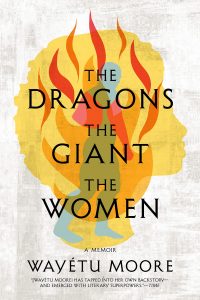 Wayétu Moore, The Dragons, the Giant, the Women
Wayétu Moore, The Dragons, the Giant, the Women
Graywolf, June 2
The first memoir from the author of She Would Be King tells the story of Moore’s experiences as a child during the Liberian Civil War, and her new life in Texas—with a magical realist twist (as befits the mind of a five year old during massive upheaval). In an interview, Moore said that she hoped the book might “give a new perspective to the African war story that isn’t about some aid worker who came in and saved us, and we weren’t in a refugee camp. This was my dad doing what he could to make sure we were safe, my mom risking everything to go back, and this network of women soldiers that created a business trafficking people’s families out of the country when no one was allowed out of the country at the time.” –Emily Temple, Lit Hub Senior Editor
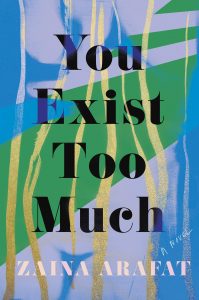 Zaina Arafat, You Exist Too Much
Zaina Arafat, You Exist Too Much
Catapult, June 9
The title of Palestinian American writer Zaina Arafat’s novel echoes a bit of dialogue between the protagonist and her mother. When the young woman intimates to her mother that she is queer, her mother replies, “You exist too much.” The narrator subsumes the weight of her mother’s words, a stress that is added to the one incident that has followed her throughout her childhood and has made her feel shame and embarrassment for merely existing in her body.
Arafat tells the woman’s story by switching between cities, like New York, where she currently lives as a successful DJ and writer, and the Middle East (e.g., Palestine and Lebanon); this kind of narrative accentuates the narrator’s sense of disorientation and search for home. At the same time, in looking for love, the narrator bounces between lovers and obsessions and ultimately is diagnosed with “love addiction.” Told with sympathy and what seems like, some irony, You Exist Too Much intrigues me for its multiculturalism and dissection of the notion that romantic love can be an all-bearing measure of personal fulfillment. –Eleni Theodoropoulos, Lit Hub Editorial Fellow
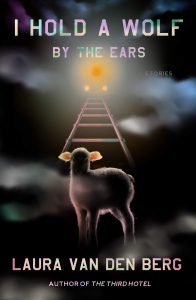 Laura van den Berg, I Hold a Wolf By the Ears
Laura van den Berg, I Hold a Wolf By the Ears
FSG, June 9
On the heels of her 2018 novel The Third Hotel—a brilliant, mesmerizing grief odyssey in the spirit of Pedro Páramo and David Lynch that I couldn’t shake for days after finishing—Laura van den Berg’s ghostly new short story collection confronts “misogyny, violence, and the impossible economics of America” though a focus on women teetering over the edge. Already named one of the most anticipated books of 2020 by Entertainment Weekly, Oprah Magazine, and the BBC, readers of I Hold a Wolf by the Ears can expect more of van den Berg’s vivid atmospherics, bitingly dark humor, and grimly profound meditations on the human condition. –Dan Sheehan, Book Marks Editor
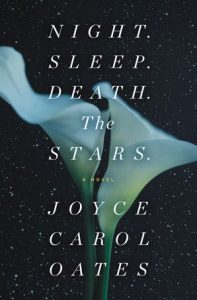 Joyce Carol Oates, Night. Sleep. Death. The Stars.
Joyce Carol Oates, Night. Sleep. Death. The Stars.
Ecco, June 9
The latest novel from the extraordinarily prolific Joyce Carol Oates explores a family’s complicated reaction to the death of its patriarch. According to its publisher, it is also “a vivid exploration of race, psychological trauma, class warfare, grief, and eventual healing, as well as an intimate family novel in the tradition of the author’s bestselling We Were the Mulvaneys.” –Emily Temple, Lit Hub Senior Editor
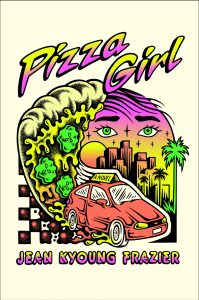 Jean Kyoung Frazier, Pizza Girl
Jean Kyoung Frazier, Pizza Girl
Doubleday, June 9
In Pizza Girl, our hero is a pregnant 18-year-old pizza delivery girl, working in the suburbs of Los Angeles, going through life with a kind of tunnel vision. She’s putting all thoughts of her future on hold and fixating on a customer, a mother who’s just moved into the neighborhood. If you like obsessive narrators, if you like quirky coming-of-age arcs, if you like stories about people in deep denial about their realities, if you like unlikely female friendships that blur boundaries (think: Miranda July’s The First Bad Man), if you like pizza—you’ll probably enjoy Jean Kyoung Frazier’s Pizza Girl. It’s got heart and heartbreak and a whole lot of humor to boot. –Katie Yee, Book Marks Assistant Editor
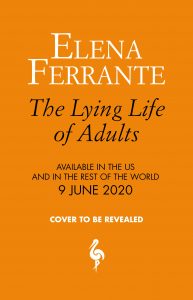 Elena Ferrante, tr. Ann Goldstein, The Lying Life of Adults
Elena Ferrante, tr. Ann Goldstein, The Lying Life of Adults
Europa, June 9
We know very little about this book except that it has a crushing opening line. “Two years before leaving home my father said to my mother that I was very ugly.” In June we can read the rest. –John Freeman, Lit Hub Executive Editor
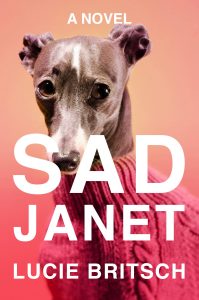 Lucie Britsch, Sad Janet
Lucie Britsch, Sad Janet
Riverhead, June 16
First of all, the cover makes me laugh. Second of all, “a blackhearted comedy about doctors, dating, dogs, and depression”? How did the book gods know that was exactly what I wanted to read this summer? –Emily Temple, Lit Hub Senior Editor
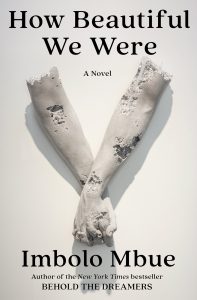 Imbolo Mbue, How Beautiful We Were
Imbolo Mbue, How Beautiful We Were
Random House, June 16
This extraordinary novel reads like an update of Things Fall Apart in the era when multinational oil companies are the new colonial rulers. In the book, Mbue shows what happens when a diverse cast of people living in a village decide to stand up to an oil conglomerate taking over their area, destroying their land. Whereas Mbue’s PEN/Faulkner winning debut Behold the Dreamers moved with deceptive lightness, this novel is a powerful indictment of the world such companies leave behind. Children are dying from drinking polluted water. Reparation payments are promised and then shrugged off. A generation was made in this climate, Mbue’s book reveals, and we see this up close through the story of a girl named Thula, who grows up to be a revolutionary. –John Freeman, Lit Hub Executive Editor
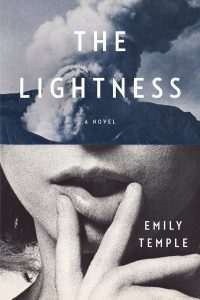 Emily Temple, The Lightness
Emily Temple, The Lightness
William Morrow, June 16
If there is any justice in the literary world, this spellbinding novel by Lit Hub’s own Emily Temple will be one of the most acclaimed debuts of 2020. The Lightness is the story of Olivia, a teenage girl who enrolls herself in a program for troubled youths at the same Buddhist meditation center from which her adored father disappeared a year previous. Once there, she falls in with a trio of mysterious girls, led by the alluring and unhinged Serena, who are determined to master the art of levitation at any cost. Darkly stylish, full of verve, acerbic wit, and shimmering intelligence, Temple’s debut is a mesmeric and unflinching exploration of adolescent female friendship and awakened sexual desire, as well as a fiery meditation on the obliterative nature of unwavering faith. Perhaps most impressively for a debut (for any novel, in fact): every sentence sings. If Donna Tartt rewrote The Craft as a novel, it might look something like this fierce, extraordinary work. –Dan Sheehan, Book Marks Editor
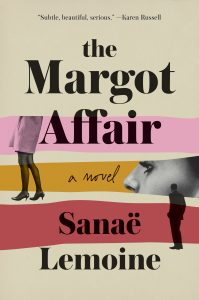 Sanae Lemoine, The Margot Affair
Sanae Lemoine, The Margot Affair
Hogarth, June 16
Margot Louve, the illegitimate daughter of a French politician and a famous actress, has decided that she will no longer live her life as a secret. Determined to reveal the truth, she befriends a journalist willing to help her. But in exposing her family’s truth, the adult world of deceit, desire, and transgression reveals itself to be more complicated than she could have imagined. –Emily Firetog, Lit Hub Deputy Editor
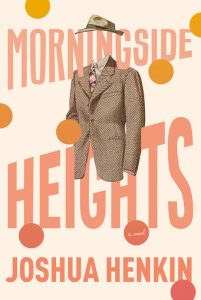 Joshua Henkin, Morningside Heights
Joshua Henkin, Morningside Heights
Pantheon, June 16
The latest novel from beloved writer’s writer (and director of the Brooklyn College MFA in fiction) Joshua Henkin is the tender, graceful story of a family, from its beginnings, when a young woman comes to New York City in the 70s and falls in love with her Shakespeare professor, through its hardships, as the couple falls apart in more ways than one, and its recoveries, when a long lost son may just save his father’s life. –Emily Temple, Lit Hub Senior Editor
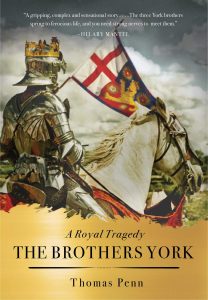 Thomas Penn, The Brothers York
Thomas Penn, The Brothers York
Simon & Schuster, June 16
This thrilling biography of the three sons of the Duke of York—who fought won and lost the War of Roses—proves that Thomas Penn is among the most gifted historians at work in England today. It would be shocking if this book isn’t adapted for a mega series, with the drama of its family so potent, the details of their lives so freshly seen here. The fate of their country—plague wracked, underfunded, in search of cash—so knife’s edged. Edward IV was a teenager who’d never led an army and who suddenly through power of will and magnetism did so with awesome force. His physicality was so absurd as to be a kind of mania, from the sheer volume of sexual partners he took, to the way he constructed a variety of diets and diuretics to allow him to purge and gorge. In spite of it all, it was Edward’s feats of mind and cleverness as a ruler though that outlast him, shining a dim light on his younger brother, George, Duke of Clarence, who never expanded his territory or even attained the title of king. His failure to launch makes this a familiar family drama, complete with the youngest, Richard, whose brief two-year reign was as tumultuous as his brothers. This is juicy, impeccably researched work that ought to earn Penn a massive audience. –John Freeman, Lit Hub Executive Editor
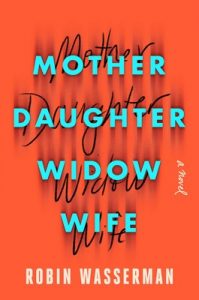 Robin Wasserman, Mother Daughter Widow Wife
Robin Wasserman, Mother Daughter Widow Wife
Scribner, June 23
It only makes sense that Robin Wasserman is also a television writer since Mother Daughter Widow Wife opens with a premise that is reminiscent of many a bingeable-thrillers. Wendy Doe is found aboard a Peter Pan bus to Philadelphia with no memory of her life or identifying information on her. She is admitted to the state, where medical professionals give her a name and diagnosis and wait to see if her memory will return. Viewing her as a fine specimen for experimental observation, a Dr. Benjamin seizes the opportunity to take her into his lab and study her. Through the respective actions and viewpoints of Dr. Benjamin, his ambitious student Lizzie, and Wendy’s daughter Alice, the reader comes to see projected onto Wendy Doe a plethora of expectations of womanhood. For those who are fans of thriller tropes as well as deeper questions like, the concept and nature of identity itself—whether it is socially constructed, individually fashioned, ingrained or created—this one should be on your radar. –Eleni Theodoropoulos, Lit Hub Editorial Fellow
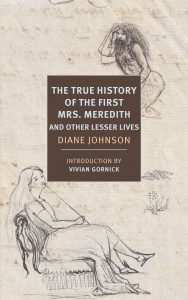 Diane Johnson, The True History of the First Mrs. Meredith and Other Lesser Lives
Diane Johnson, The True History of the First Mrs. Meredith and Other Lesser Lives
NYRB, June 23
Diane Johnson turned 85 last year and what a long, spectacular life in writing she has had. In the early 1950s, while still a student at a small women’s college in Missouri, she came to New York and interned along side Sylvia Plath at Mademoiselle. Like so many of her contemporaries, Plath included, Johnson married young, in her case, leaving school early, and within a dozen years she had four children, a PhD in Literature from UCLA, and a newly minted divorce. That year, 1965, she issued her first novel and has been publishing across many genres ever since. For fifty years she has been one of several writers the New York Review has dispatched to write on lives missing in public.
Her novels, from the satirical tales of ex-pat life, like Le Divorce, one of three National Book Award finalists she’s written, to Lying Low, her 1970s Patty Hearst aria of the consequences of radical life, are stylish and thrilling adult pleasures. Novels that work within the marriage plot, yet show how capacious that space can be when interrogated well. Persian Nights, a Pulitzer finalist in 1988, bears rereading now, with its tale of innocents abroad in the build up to the Shah’s revolution in 1979. A group of Americans in residence at an Iranian hospital are so preoccupied with their energetically low-key extra-marital couplings that they don’t see what’s right before them. Along the way, Johnson moonlit in Hollywood, co-writing the screenplay to The Shining, and also molded herself into an excellent biographer, of Dashiell Hammett and others. The best of her work in this form is The True History of Mrs Meredith and Other Lesser Lives, first issued in 1972, now republished, which begins with this powerful series of sentences. “Many people have described the Famous Writer presiding at his dinner table. . . . He is famous; everybody remembers his remarks. . . . We forget that there were other family members at the table—a quiet person, now muffled by time, shadowy, whose heart pounded with love, perhaps, or rage.” Thus begins Johnson’s life of the Mary Ellen Peacock Meredith, the daughter of the painter Thomas Love Peacock and later first wife to the poet George Meredith. What a sterling book this is, an early version of a genre—the “lesser” life—and as such, bursting with energy as it makes a new form. Vivian Gornick contributes an excellent introduction, arguing why rereading the lives within the life of a writer is an essential moral task. –John Freeman, Lit Hub Executive Editor
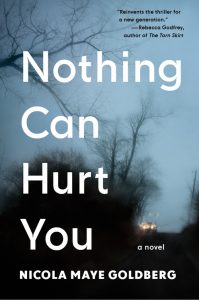 Nicola Maye Goldberg, Nothing Can Hurt You
Nicola Maye Goldberg, Nothing Can Hurt You
Bloomsbury, June 23
This debut literary thriller, which is based on a true story, investigates the complicated reverberations of a college student’s murder in a small community in upstate New York. “This novel feels wholly new,” Rebecca Godfrey wrote. “Goldberg elegantly destroys all the ‘dead girl’ tropes we’ve tired of, and in doing so reinvents the thriller for a new generation—her heroines, like her voice, are wise, darkly funny, and often startingly beautiful.” Sounds good to me. –Emily Temple, Lit Hub Senior Editor
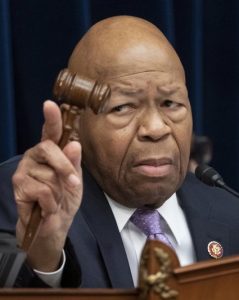 Elijah Cummings, We’re Better Than This
Elijah Cummings, We’re Better Than This
Harper, June 30
If you feel grim about government, or fearful of where the U.S. is going. If you need hope—or courage—that to fight for justice in a civic sphere is worth your time, your very breath: follow this link here and listen to the late representative Elijah Cummings. His passionate, decent and enlarging idea of what the U.S. can be is bound to stir. He does not for a second coat over the many spectacles of injustice one encounters every day. As he points out in this interview, he lived through them. “My passion comes from pain,” he says. Then proceeds to list the ways his grand-father, his father, and his mother struggled. We’re better than this is a frequent refrain, it doesn’t need to be explained; he used it frequently in other speeches he gave on capitol hill. Congress lost a beacon of light and love when he died, but Cummings has left behind this book. If there’s any resemblance between it and the way he lived, what he fought for, what he spoke about, it will provide necessary communion with our better natures. –John Freeman, Lit Hub Executive Editor
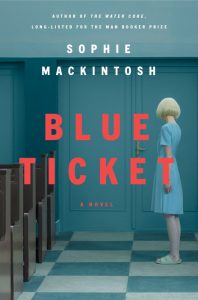 Sophie Mackintosh, Blue Ticket
Sophie Mackintosh, Blue Ticket
Doubleday, June 30
As you may have noticed, I am a huge fan of Sophie Mackintosh’s luminous, intense The Water Cure, so I cannot wait for her second novel, set in a world in which a lottery system tells women what kind of life they’ll have: will they be a wife and mother or a career? But when Calla begins to question her ticket, she winds up on the run and at odds with the world she knows. Sign me up. –Emily Temple, Lit Hub Senior Editor












